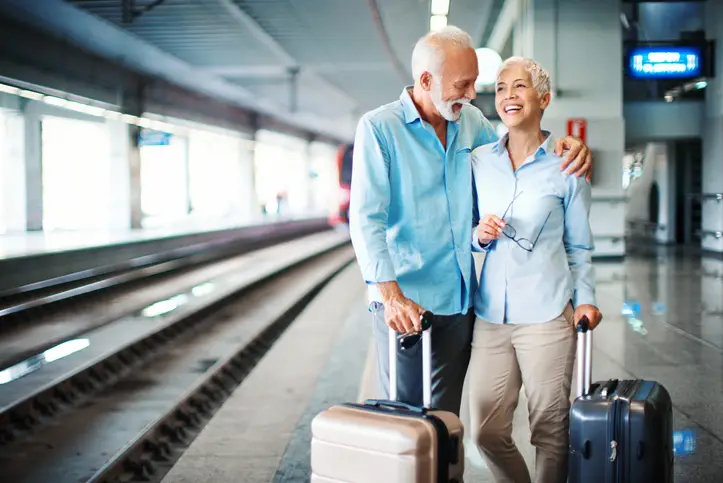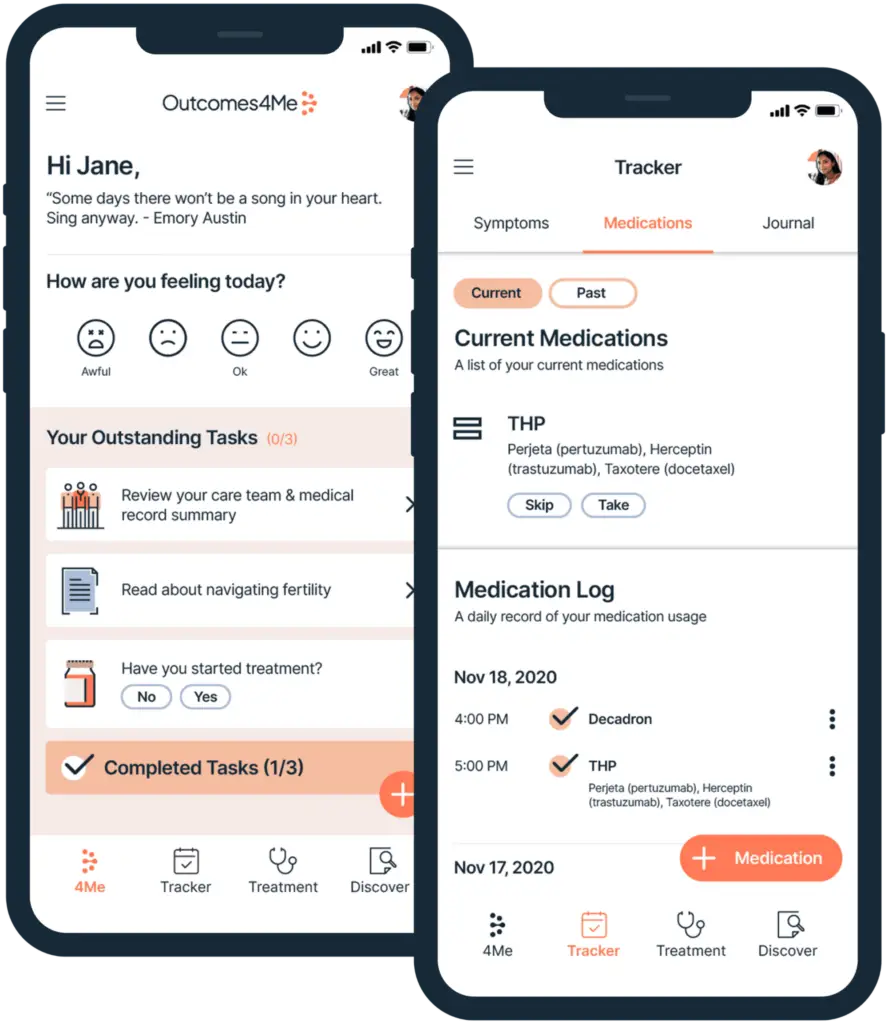If you’re planning your next trip amid a cancer diagnosis, your travel arrangements will probably look a lot different than they have in the past. Whether you’re in active treatment or not, you still deserve to take time for yourself to travel, if it’s a priority for you and as long as your care team confirms that travel won’t have a negative influence on the status of your overall health. Vacation might not feel like it used to feel, but that doesn’t mean you can’t find a way to make it happen.
Here are 5 tips to keep in mind while booking an excursion of any kind.
Talk to your doctor first.
Whether you’re nervous about traveling or feeling excited – or a combination of the two – it’s important to let your doctor know what you’re planning and ask them how travel might affect your cancer treatment. If you’re in the middle of active treatment like chemotherapy, it can leave you immunocompromised and increase the risk of infection and side effects, so ask your doctor when would be best in your treatment cycle to travel and if they feel you are strong enough to handle a trip. Better yet, ask them to write you an official authorization that clears you to go. SOURCE
Pack all your medication.
Make sure you have all your medications ready to go, and consider bringing some extra doses just in case you get delayed or lose anything in transit. Never pack any medication or medical apparatus in your luggage; instead, bring it in your carry-on. Some cancer-related drugs might require a doctor’s note in countries other than the United States, so keep a copy of your doctor’s authorization along with your pills. Also include a thorough list of medications, dosage and any doctor’s notes from your recent visits that could be valuable in case of emergency while you’re away. SOURCE Also, don’t ever forget your sunscreen. SOURCE
Prepare for the airport.
If you’re booking a flight, think about what you may need while in the air and choose your seat wisely, if possible. Think about an aisle seat that’s easily accessible, whether you need the flight attendant’s assistance or to use the lavatory. If you’re flying with a caregiver and can’t get seats together, get to the airport early enough to discuss your situation at the gate, and make sure to secure a ride from security to the gate, a wheelchair if necessary, and priority boarding. Also, bring detailed instructions in case someone else needs to administer your medications. SOURCE
Prepare for the plane – or the car.
You’ll want to be as comfortable as possible on your trip, no matter how you choose to travel. Consider bringing a blanket, a neck pillow, and compression socks with you. If chemotherapy is part of your treatment plan, you may be more prone to blood clots in your legs (deep vein thrombosis), so consult with your doctor about the need to wear compression socks, especially on the plane where altitude changes. Air travel can cause lymphedema, so it’s a good idea to wear a compression garment on all flights to help prevent it or to reduce symptoms if you are already living with the condition. Generally speaking, everyone should consider wearing compression socks in the air, regardless of any known medical issues, especially if you’ll be sitting for an extended period of time. Try to get up and move around every 2-3 hours to keep the circulation going in your legs, or try stretching your calves with simple exercises from the CDC.
Don’t forget to pack some easy-to-reach snacks, like nuts, pretzels or yogurt, to help with nausea and to keep you from any unnecessary malnutrition. Bring a light sandwich or some crackers, and grab water or juice at the airport before you board, so you don’t get dehydrated in transit. SOURCE
Book your stay wisely.
Amenities that might have felt obvious before your diagnosis – like air conditioning, sun-brellas, or unlimited filtered water – may be more important than ever before. Before choosing your accommodations, ask about the facility’s emergency policies. How difficult is it to see a doctor? How far is the nearest hospital? Will you need a car to get around? Is your room accessible? These are all questions to ask when booking a hotel. SOURCE
At the end of the day, it’s ok to take some time for yourself. If your doctor says it’s advisable, book a trip that works for you, and doesn’t make you work at all. Ask a friend or family member to come along, and let them take care of you – you deserve it.




